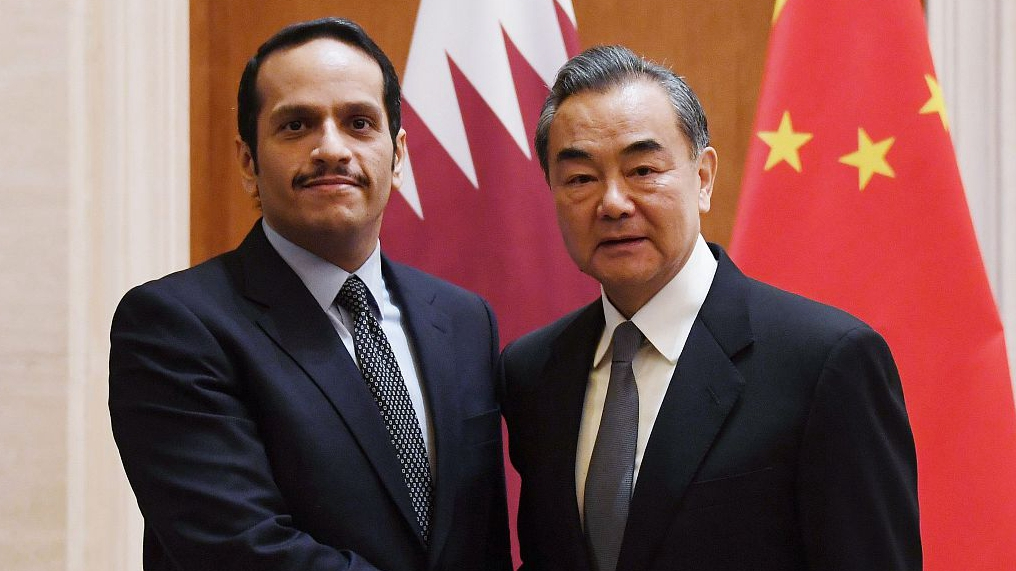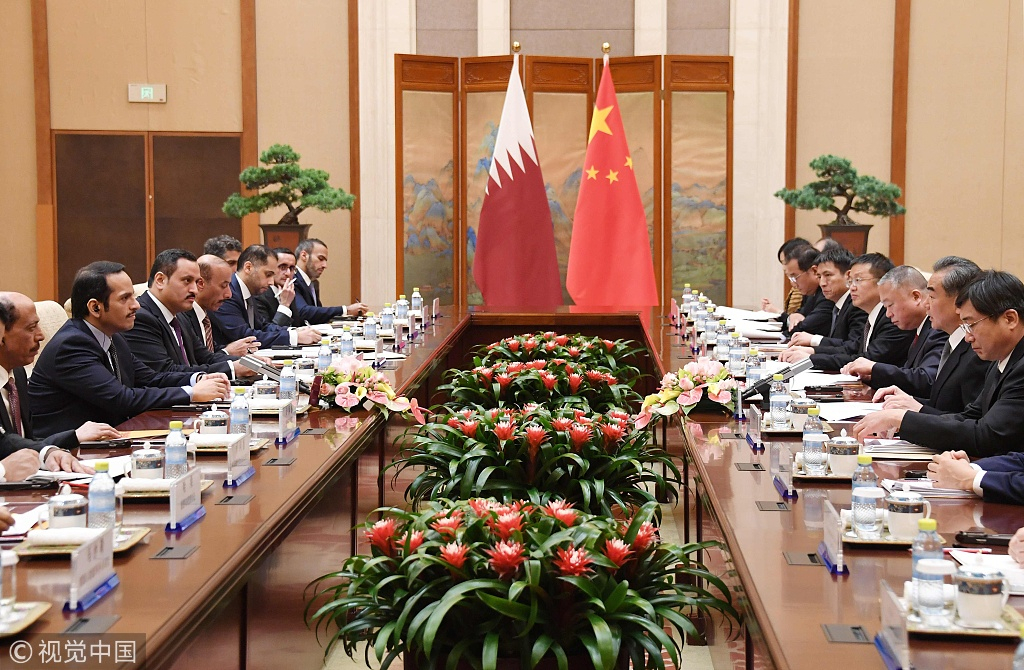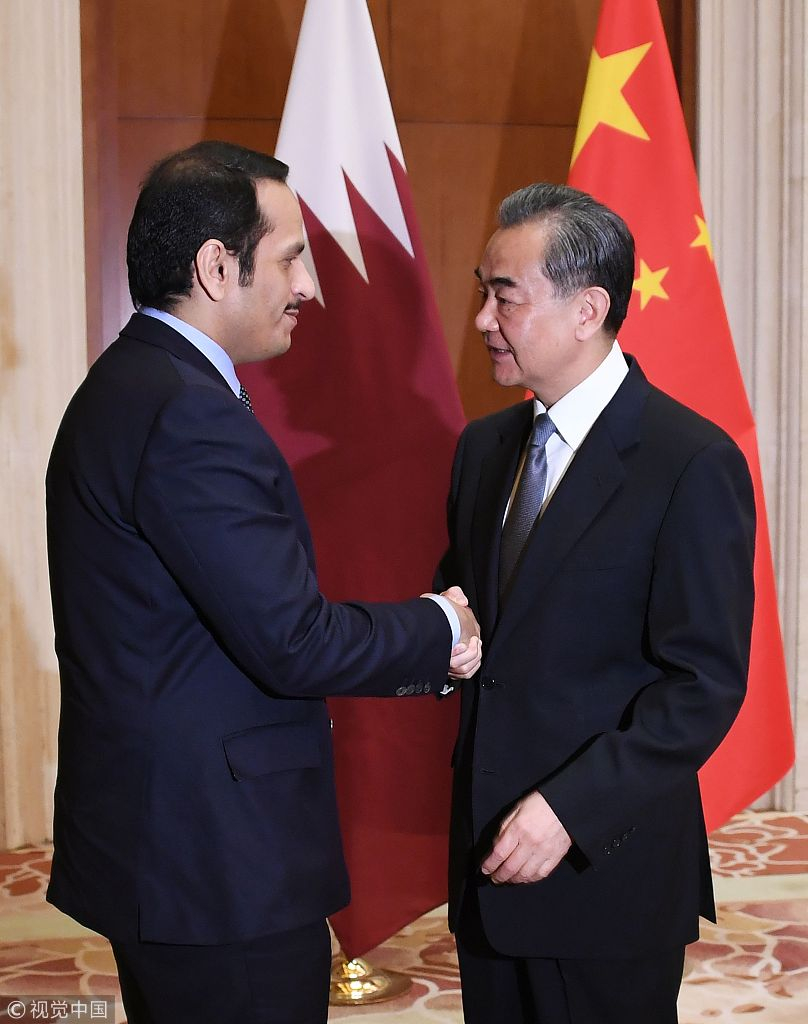
Opinion
14:04, 31-Jan-2019
The bright prospect of China-Qatar cooperation
Liao Baizhi

Editor's note: Liao Baizhi is a research professor and deputy director at the Institute of Middle East Studies of the China Institute of Contemporary International Relations. The article reflects the author's view, and not necessarily those of CGTN.
Qatari Emir Sheikh Tamim bin Hamad Al Thani is on a state visit to China from January 30 to 31 at the invitation of Chinese President Xi Jinping.
Qatar is an important country in the Persian Gulf and China's important partner. The two countries have maintained a close relationship. Especially since the establishment of the strategic partnership between China and Qatar in November 2014, the two countries' cooperation has gained more momentum. With Qatar joining China's Belt and Road Initiative (BRI), more opportunities have emerged for them to broaden the cooperation.
China and Qatar will strengthen communication and cooperation in regional affairs. For China, Qatar is one of the most active countries in the Middle East. It has a tradition of "small country but big diplomacy" and plays a unique role in many regional issues. For Qatar, China is a great power with a pivotal role in the world. Qatar has always attached importance to its relationship with China.

Qatar's Foreign Minister Mohammed bin Abdulrahman al-Thani (2nd L) meets with China's Foreign Minister Wang Yi (2nd R) in Beijing's Diaoyutai State Guesthouse, December 12, 2018. /VCG Photo
Qatar's Foreign Minister Mohammed bin Abdulrahman al-Thani (2nd L) meets with China's Foreign Minister Wang Yi (2nd R) in Beijing's Diaoyutai State Guesthouse, December 12, 2018. /VCG Photo
In particular, after Saudi Arabia, the United Arab Emirates, Egypt and Bahrain severed diplomatic ties with Qatar in June 2017, in order to break the blockade of the four countries, Qatar has launched intensive diplomatic efforts around the world, with China high on the list.
In December 2018, the two countries held the first round of strategic dialogue at the level of foreign ministers in Beijing, which will be held once a year in the future. This demonstrates the strength and depth of the bilateral relations and marks the further institutionalization of cooperation between the two countries.
Trade between the two countries has rapidly been increasing in recent years. In 2017, the bilateral trade volume was 8.08 billion U.S. dollars, where China's exports were 1.68 billion U.S. dollars and imports 6.4 billion U.S. dollars, up 46.2 percent, 11 percent, and 59.4 percent respectively. Qatar's trade with China has been growing the fastest among BRI countries.
Especially in the energy sector, Qatar has been a leading importer of LNG from China. Imports from Qatar accounts for 20 percent of China's total natural gas demand. In 2017, China's natural gas imports increased by 46 percent, most of which came from Qatar.
In September 2018, Petro China and Qatar Gas reached a 22-year LNG import contract with an annual purchase of 3.4 million tons, which will undoubtedly contribute to China's efforts to combat air pollution.

Qatar's Foreign Minister Mohammed bin Abdulrahman Al Thani (L) is greeted by China's Foreign Minister Wang Yi before a meeting in Beijing's Diaoyutai State Guesthouse, December 12, 2018. /VCG Photo
Qatar's Foreign Minister Mohammed bin Abdulrahman Al Thani (L) is greeted by China's Foreign Minister Wang Yi before a meeting in Beijing's Diaoyutai State Guesthouse, December 12, 2018. /VCG Photo
In the field of infrastructure, China Railway Construction has undertaken the construction of the main stadium of the 2022 World Cup, which is the most important project in Qatar, and the Hamad Port, which was built by China Harbour, was officially opened at the end of 2016.
The port is one of the largest in the Middle East, the two "China-Gulf Express (Shanghai - Hamad)", which opened in the beginning of 2017 and September, will allow Qatar to import goods directly from China without re-exporting through the UAE.
There is much room for cooperation in the tourism industry to increase. In recent years, Qatar has been actively developing its tourism industry. The contribution of the tourism industry in its GDP is expected to increase from 0.7 percent in 2011 to 6.4 percent in 2021, and reach 8 percent by 2030.
In August 2017, Qatar announced that it will immediately allow the visa-free entry for citizens of 80 countries. As China was included, it immediately became the country's fastest-growing source of tourists.
In July 2018, the two countries signed a mutual visa exemption agreement, which took effect on December 21 in the same year. With the upcoming Qatar World Cup in 2022, more Chinese tourists are expected to flock to Qatar.
At present, Qatar is promoting the "2030 Vision" in the hope of achieving economic diversification and expanding industrial development, which provides new opportunities for the next step of capacity cooperation between the two countries.
(If you want to contribute and have specific expertise, please contact us at opinions@cgtn.com)

SITEMAP
Copyright © 2018 CGTN. Beijing ICP prepared NO.16065310-3
Copyright © 2018 CGTN. Beijing ICP prepared NO.16065310-3